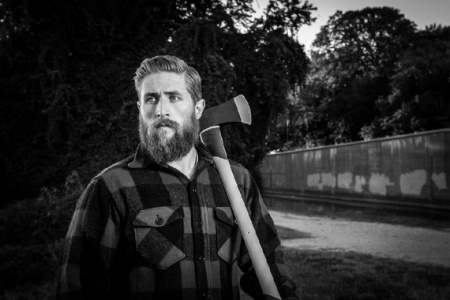
White men have been fretting about losing their *mumble*something* for at least 100 years. (Nitpick: I guess ‘lumbersexual’ is a play on ‘metrosexual,’ but it sounds too much like homo/bi/heterosexual to me, possibly because it’s so compatible with the hypermasculine archetypes in the gay community, so I keep thinking the lumbersexuals should be the ones lusting after these Bunyanesque figures.)
As silly as this particular instance is, I feel like this might have a useful connection to other conversations, like boys doing worse in school as more schools do away with recess and popular — and sometimes data — support for stereotypes like men being more likely to die doing something stupid.
As a society, we have recently been putting too much emphasis on sitting quietly (or at least being reasonably orderly) — first, explicitly, with public schools, designed as a method for pre-training a ready workforce, and even more so in the last century as the manufacturing economy gives way to cubicles as far as the eye can see. Women have an advantage in such constricting environments by being socialized to “go along to get along,” but it shouldn’t surprise us when men, who retain “boys will be boys” socializing in spite of these macro changes in our social environment, have more trouble “adjusting.”
I’m not advocating going along to get along — I think rejecting that expectation is healthy, and it’s explicitly a form of privilege to feel free to reject it. I feel like we are seeing a wide range of signs that are telling us we need to move more, do more hands-on activity, inhabit our environments more actively. Women, too! We just don’t have the handy stereotypes to model on.
The Atlantic article goes on to explain that the romance of the lumberjack image was deeply at odds with the hazardous and tenuous life of actual lumberjacks, especially as the industry expanded. Logging remains one of the most dangerous jobs in the United States, a lot of risk for barely $35k a year. This makes the appeal of the mythos greater, of course, rather than less — however you feel about logging today, the historic image is one of honest work to help build a growing nation. Even for people who also enjoy knowledge work, that is a powerful draw — getting up, getting your hands dirty, having a physical object to show for it, a feeling of righteous exhaustion, all in the service of something tangibly useful. You don’t have to wear plaid to split wood, and you don’t have to split wood to enjoy making things. We clearly yearn for more than cubicle life, so let’s make sure we get out more.
